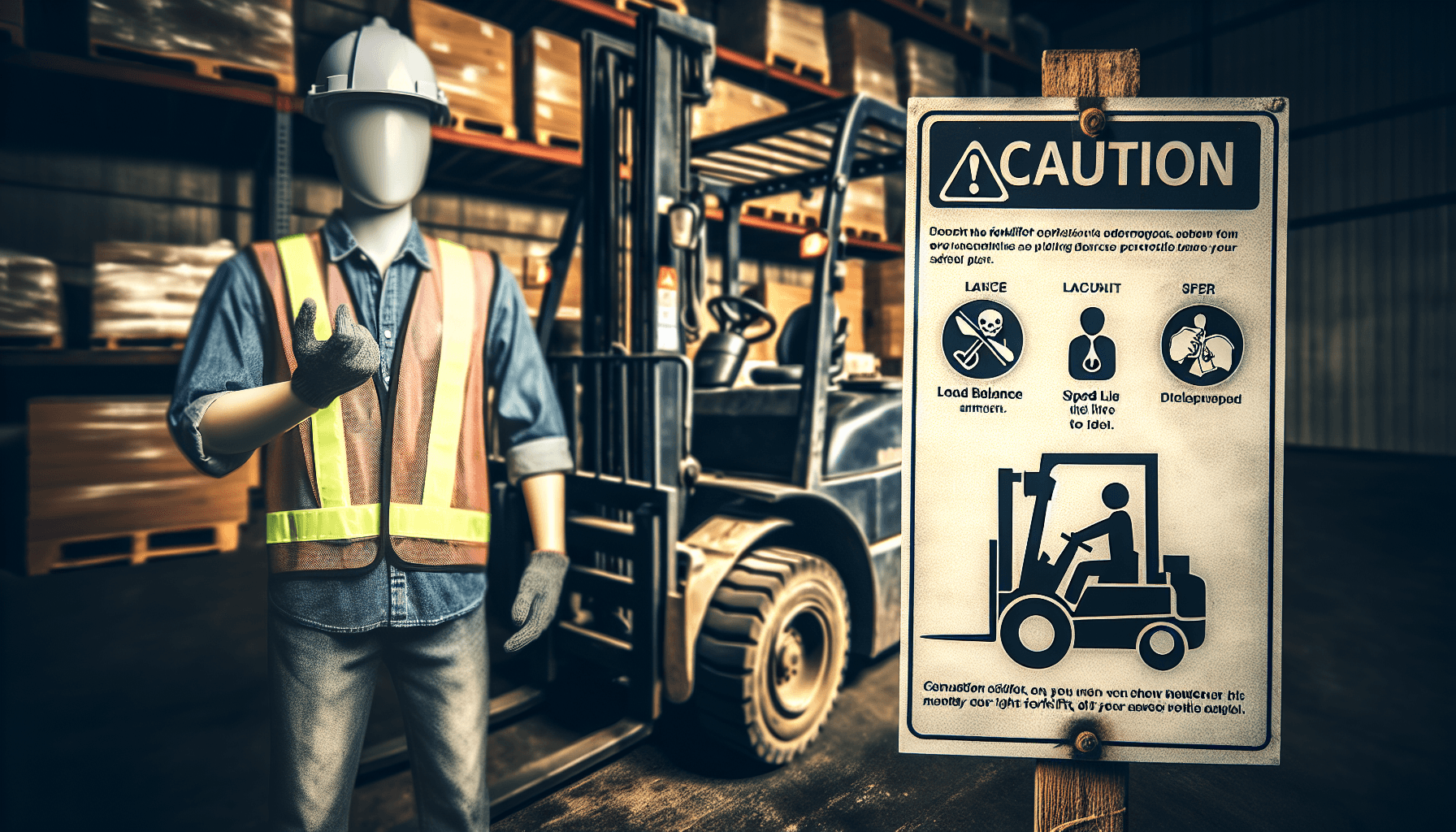Unsafe forklift practices can pose significant risks to warehouse operations, including the safety of workers and the efficiency of processes. It is crucial for warehouse managers to address these practices promptly to ensure a safe working environment. In this article, we will discuss some common unsafe forklift practices and provide strategies to effectively address them.
1. Lack of Proper Training
One major contributor to unsafe forklift practices is a lack of proper training. Operating a forklift requires specialized knowledge and skills to ensure safe operation. Without appropriate training, operators may not be aware of the correct procedures, safety protocols, and potential hazards.
To address this issue, it is essential to provide comprehensive training programs for forklift operators. These programs should cover topics such as forklift operation, load handling, maneuvering in tight spaces, and emergency procedures. Regular refresher courses should also be conducted to ensure that operators stay up to date with safety standards and best practices.
Partnering with a reputable warehouse optimization solutions provider, like HCO Innovations, can be beneficial in implementing effective training programs. They offer warehouse safety evaluation services, which can help identify areas where additional training is needed and provide tailored training solutions.
2. Failure to Follow Safety Procedures
Another common issue in warehouses is the failure of forklift operators to follow established safety procedures. This can include ignoring speed limits, improper use of seatbelts, or failure to observe designated traffic lanes. Such practices can significantly increase the risk of accidents and injuries.
To address this problem, it is crucial to establish clear and enforceable safety protocols. These protocols should include guidelines on speed limits, wearing seatbelts, maintaining safe distances from pedestrians and other vehicles, and observing traffic patterns. Regular reminders, signage, and ongoing training can help reinforce these procedures and encourage compliance.
It may also be beneficial to implement monitoring systems, such as telematics, to track and assess the adherence to safety protocols. These systems can provide insights into operator behavior and enable proactive interventions when unsafe practices are observed.
3. Improper Loading and Unloading
Improper loading and unloading of materials onto forklifts is another unsafe practice that can lead to accidents and damage to goods. Overloading a forklift can affect its stability and maneuverability, increasing the risk of tipping over. Additionally, inadequate securing of loads can result in falling objects, endangering nearby workers.
To address this issue, it is crucial to establish clear guidelines for the proper loading and unloading of materials. Forklift operators should be trained on how to assess the weight and dimensions of loads, as well as on proper securing techniques, such as using straps, chains, or pallets. Regular inspections should be conducted to ensure compliance with these guidelines.
Implementing advanced technologies, such as weight sensors and load monitoring systems, can also help prevent overloading incidents. These systems can provide real-time feedback to operators, warning them if they are exceeding safe load limits.
4. Inadequate Maintenance and Inspections
Inadequate maintenance and infrequent inspections of forklifts can contribute to unsafe practices. Faulty brakes, worn-out tires, or malfunctioning safety features can increase the risk of accidents. Additionally, neglecting routine inspections can lead to undetected issues that may worsen over time.
To address these concerns, warehouse managers should establish a robust maintenance and inspection program for all forklifts. This program should include regular inspections, maintenance schedules, and documentation of repairs. It is important to follow the manufacturer’s recommendations for maintenance and to address any identified issues promptly.
Partnering with a warehouse optimization solutions provider like HCO Innovations can be beneficial in implementing a comprehensive maintenance and inspection program. They can assist in developing a customized program that aligns with industry best practices and ensures the safety and performance of forklifts.
In conclusion, addressing unsafe forklift practices is crucial for enhancing safety and productivity within warehouse operations. By providing proper training, establishing and enforcing safety procedures, promoting proper loading and unloading techniques, and implementing regular maintenance and inspections, warehouse managers can mitigate risks and create a safer working environment.
For a comprehensive evaluation of your warehouse safety practices and guidance on implementing effective measures, contact HCO Innovations today.

